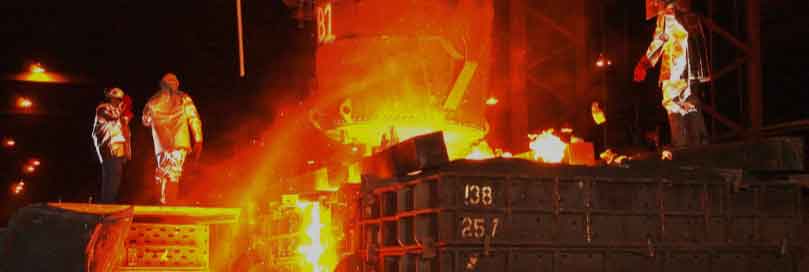
Steel castings offer numerous advantages due to their inherent properties, making them a preferred choice in many industries. Here are some key advantages of steel castings:
- Strength and Durability: Steel is known for its exceptional strength and durability, making steel castings capable of withstanding heavy loads, high pressures, and harsh operating conditions. They provide structural integrity and can withstand wear, impact, and fatigue, ensuring long-term performance and reliability.
- Versatility: Steel castings offer a high degree of design flexibility, allowing for the creation of complex shapes, intricate details, and precise dimensions. This versatility makes them suitable for a wide range of applications across various industries.
- Weight-to-Strength Ratio: Steel castings have an excellent weight-to-strength ratio, meaning they provide high strength while maintaining relatively lower weight compared to other materials. This characteristic is particularly advantageous in applications where weight reduction is crucial, such as aerospace and automotive industries.
- Corrosion Resistance: Depending on the alloy composition, steel castings can exhibit excellent corrosion resistance, particularly when stainless steel is used. This makes them suitable for applications in corrosive environments, such as marine, chemical, and oil and gas industries.
- Heat Resistance: Steel castings can withstand high temperatures without losing their structural integrity. They exhibit good heat resistance, making them suitable for applications in high-temperature environments, such as furnace components, exhaust systems, and power generation equipment.
- Wear Resistance: Steel castings can be engineered to possess high wear resistance, making them suitable for applications involving abrasive or erosive conditions. This includes mining equipment, pumps, and machinery components that come in contact with abrasive materials.
- Machinability: Steel castings can be machined easily, allowing for precise and accurate finishing operations. This facilitates the production of components with tight tolerances, intricate features, and smooth surfaces.
- Cost-effectiveness: While the initial cost of steel castings may be higher compared to other casting materials, their long-term cost-effectiveness comes from their durability, longevity, and reduced maintenance requirements. The extended service life of steel castings can result in significant cost savings over time.
The advantages of strength, versatility, durability, corrosion resistance, heat resistance, wear resistance, machinability, and cost-effectiveness make steel castings a preferred choice in various industries such as automotive, aerospace, construction, energy, mining, and more. Their ability to meet demanding performance requirements and withstand challenging operating conditions makes them an excellent option for critical applications.
